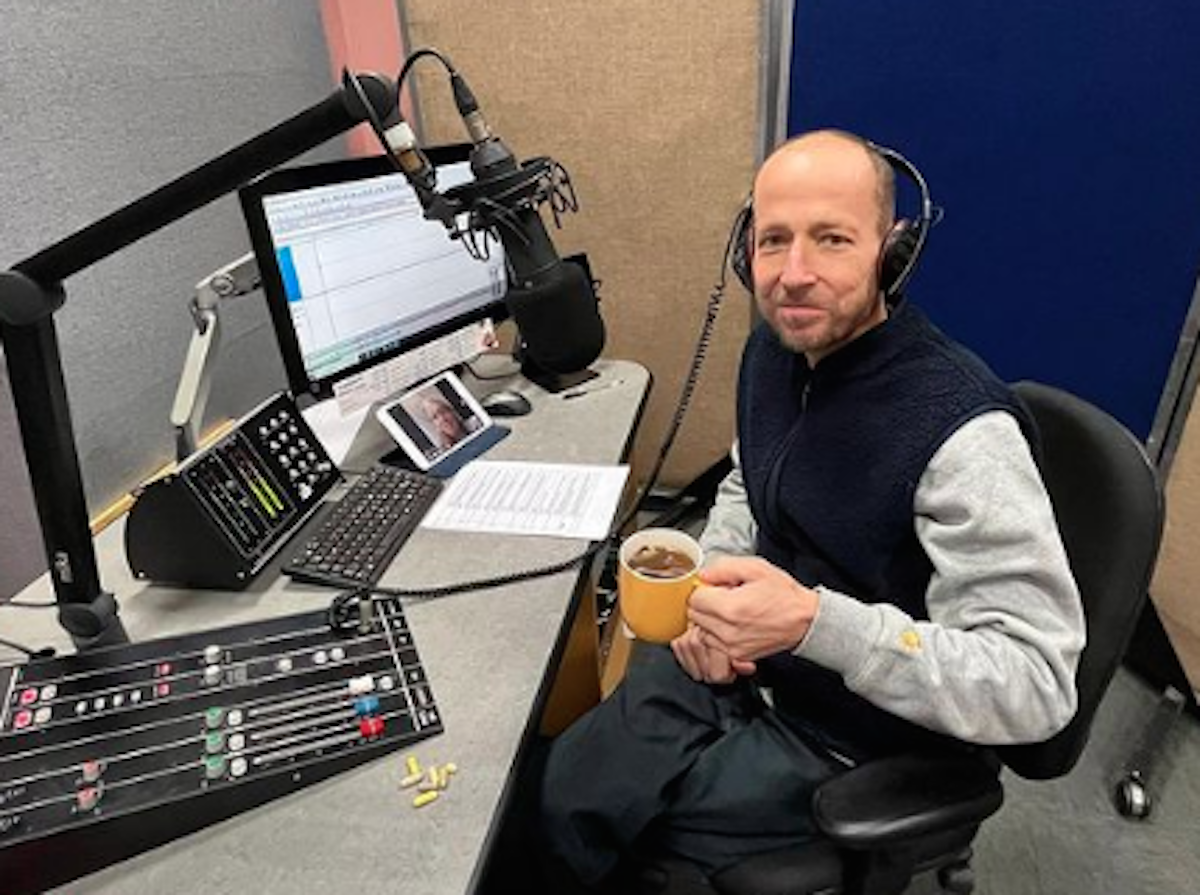Supporting Another During Cancer Battle
- TV presenter Jonnie Irwin, 49, isn’t short on support during his stage 4 lung cancer battle. The "Escape to the Country" star's sister revealed her popular brother is an "absolute fighter" while battling terminal cancer.
- Irwin learned he had lung cancer in 2020 and has been coping with his emotional diagnosis ever since. He initially struggled to tell his wife, and he has not told his young children, instead focusing on making beautiful memories with them.
- A cancer diagnosis can be extremely stressful. Patients are encouraged to alleviate some of that stress by leaning on their support system.
- A support system can be made up of loved ones like family and friends. It may also help some people to seek help from a professional therapist or a local support group.
Famous TV star Jonnie Irwin, 49, has grabbed the hearts of so many fans and supporters after announcing his stage 4 lung cancer diagnosis, including his sister, who called her brother "a fighter" for his determination to live life to the fullest in the face of adversity.
"How do you do it little bro!" asked Amanda Irwin, Jonnie Irwin's older sister in an Instagram post.
Read MoreView this post on Instagram
"What an absolute fighter!" Amanda Irwin continued with her comment on the social media post.
Jonnie Irwin responded to his sister by saying, "I do it with the support of amazing people like you."
The last few years have been an emotional rollercoaster for Jonnie Irwin since learning he had advanced lung cancer in 2020. After learning more details about his cancer battle, he admitted he struggled to tell his wife.
He's chosen not to tell his young sons about his health. Instead, he's focused on spending as much time as he can with them so they can remember their dad with positivity.
Jonnie Irwin shared that when he's in pain, he opts for hospice care rather than staying at his family home and risking his children seeing him not feeling well. The tenacity of Irwin's cancer fight has drawn tons of support on social media alongside his supportive sister.

"He's amazing keeping going sweetie such a sh-t situation, but you keep smiling and that's the best thing to do. Hard as it is," one fan wrote to both Amanda and Jonnie on Instagram.
There is nothing like having support while battling cancer no matter where you are on your journey. Fortunately for Jonnie Irwin, his family, colleagues, and thousands of fans are standing by his side to lift his spirits every day.
Expert Resources on Treatment for Late-Stage Lung Cancer
- Guide to Late-Stage Lung Cancer Immunotherapy Options
- Hope for Advanced Lung Cancer: Newly Approved Libtayo Combination Shows Promise for Those With Otherwise Limited Treatment Options
- Two Immunotherapy Drugs Plus Chemotherapy Boost Survival For Certain Metastatic Lung Cancer Patients
- ‘Game-Changing’ Drug Enhertu Now Approved for Certain Types of Lung Cancer What Does This Mean for Patients?
Power of Support During Cancer
Jonnie Irwin's cancer diagnosis mirrors the experience of many cancer warriors coping with a diagnosis. Often a diagnosis is rife with emotions. To help navigate those feelings, Irwin's had a family to lean on to keep his fighting spirit high.
SurvivorNet experts encourage cancer patients to turn to their support system to help alleviate stress, anxiety, and other emotions associated with a diagnosis. A support system can be made up of loved ones like family and friends.
"Some people don't need to go outside of their family and friend's circle. They feel like they have enough support there," psychiatrist Dr. Lori Plutchik tells SurvivorNet.
WATCH: Sharing your cancer diagnosis.
Your support group can also be made up of people who are not friends or family but they all come together in person or virtual to support each other while battling a similar cancer or disease. If support groups are hard to come by, you can also speak to your care team which may include mental health professionals who can offer emotional support.
For members of a support group uplifting a beloved cancer warrior, it's important to remember their emotions can be wide-ranging. In these moments, be patient and give the cancer patient the time they need to process their emotions.
"People can have a range of emotions…they can include fear, anger…and these emotions tend to be fluid. They can recede and return based on where someone is in the process," Dr. Plutchik said.
Questions to Ask Your Doctor
If you find yourself struggling with a diagnosis or helping a loved one cope with their emotions, consider asking your doctor the following questions:
- When should I seek other interventions if I'm still struggling?
- How can I go about improving my outlook/mental health?
- What are the steps to finding a different therapist if the one I'm using is not working out?
- Are there any activities I can do to encourage positive feelings?
Learn more about SurvivorNet's rigorous medical review process.

